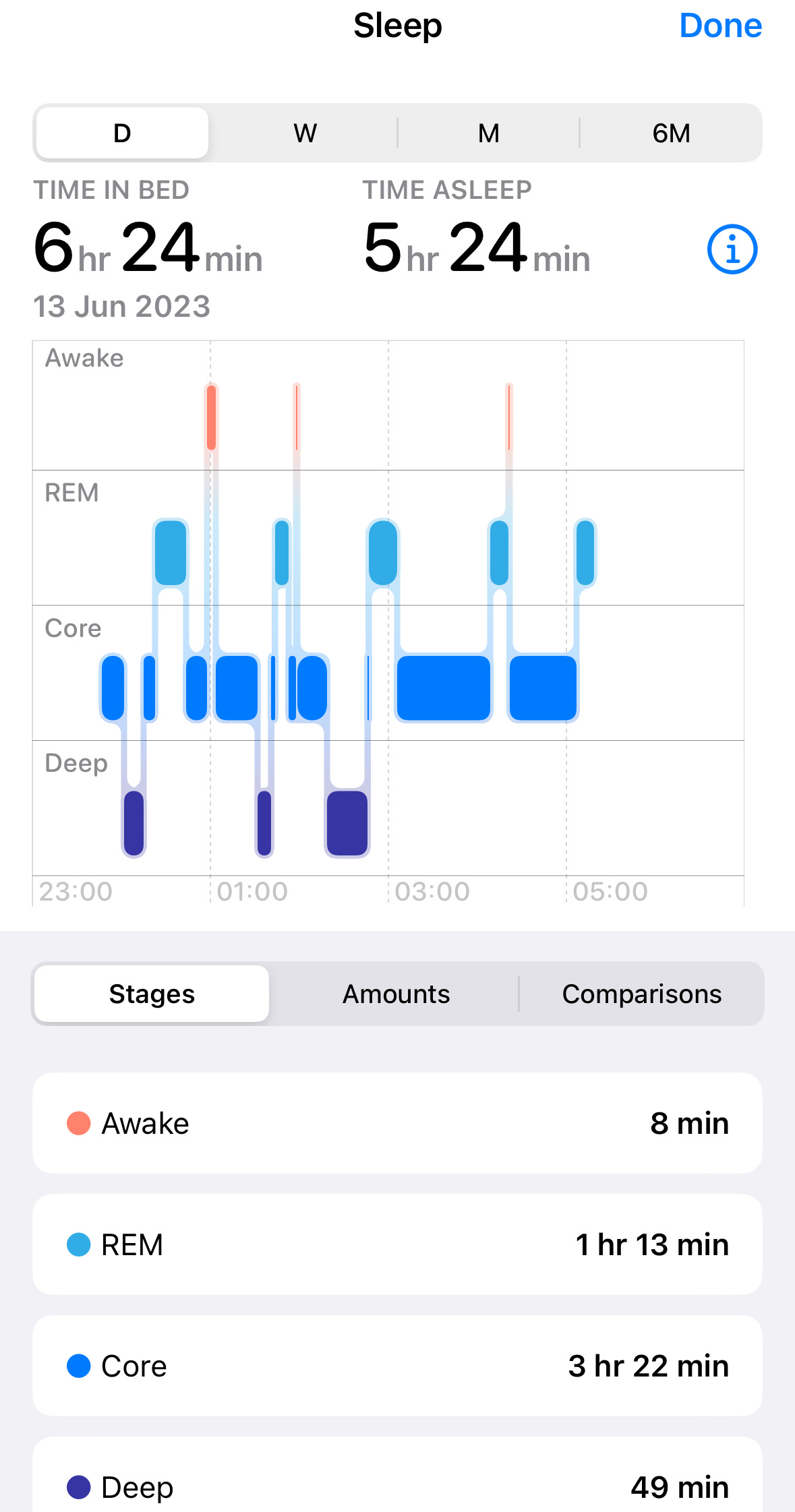Sleep - cheer up, it's not as bad as you think.
How did you sleep on one of the warmest nights of the year? I had a terrible night. I went to bed around 10:30pm, read for a bit, dropped off relatively quickly but then woke repeatedly, struggling to get comfortable, falling back asleep for a few minutes, then awake again staring at the ceiling. Finally at 5 am I gave up, turned the light on and dived into my phone to catch up on the overnight news - or, to be honest, tumbled down several social media rabbitholes.
One of my worst night’s sleep, I reflected, I hardly slept a wink. Then I checked the sleep section of the Health app on my iPhone. This only gives a detailed readout of my sleep patterns if I wear my Apple Watch overnight, which means charging it before bedtime - and unusually I had done that.
It told a surprising story. Whatever my perception of my wakeful night, I had actually slept for nearly five and a half hours out of my six and a half hours in bed. What’s more, despite my impression that I had spent hours sleepless, I had been awake for just 8 minutes overnight.
Insomnia is one of the most annoying symptoms of my Parkinson’s and last year I tried out an app called Sleepio which uses cognitive behavioural therapy to teach you good sleep habits. I learned to set a limited sleep window - I chose 11pm to 5am - and only go to bed when you are ready to turn the lights off and fall asleep, reading or watching TV or looking at your phone in another room before bedtime. The key aim was to maximise your sleep efficiency, the percentage of your time in bed that you are asleep.
Now, I have fallen back into a few bad habits - I do read in bed and find it hard to resist checking my Twitter feed. Nevertheless, I achieved a sleep efficiency rate of 84%, which isn’t bad at all, especially when the heat made for an uncomfortable night.
My conclusion? I may have absorbed more of Sleepio’s lessons than I had assumed. And when it comes to sleep, and other health matters, believe the data, not your own impressions.


Last try - the first two attempts to reply to your sleep disorders item twitched and Disappeared into Cyberspace. Now I am resorting to speech to text a little probably be a pig here. I refuse to go back and correct this stuff because otherwise it defeats the object.
My first came across you on the movies and shakers podcast when recommended by a friend I tuned into mailbag one. Having said that I find the main symptom I have a party since now is intolerant and frustration. On the subject of sleep despite your academic and technical approach to gadgets I do have been a gadget freak in my time but I found that after years and years of experience it is all big sales pitch. At the end of the day the reader you get is only as good as the gadget report and the algorithms written by some spotty teenager who sleeps perfectly well after a half a cider and well you know for a while I rely on cross-checking two gadgets Huawei watch Health app or a withering is watch Health app and a within sleep pad. No the gave a similar readout although both said I slept better than I thought I had. The answer to the problem is sleep when you want to eat when you're hungry and do whatever else you're able to do when you can do it do not listen to gadgets
I was diagnosed with PD 17 years ago ... I am 65. I have been a terrible sleeper all my life. Interestingly, as I now really analyse my sleep patterns I find that I am sleeping more than I thought. Given that maybe lack of sleep is not the issue we think it...